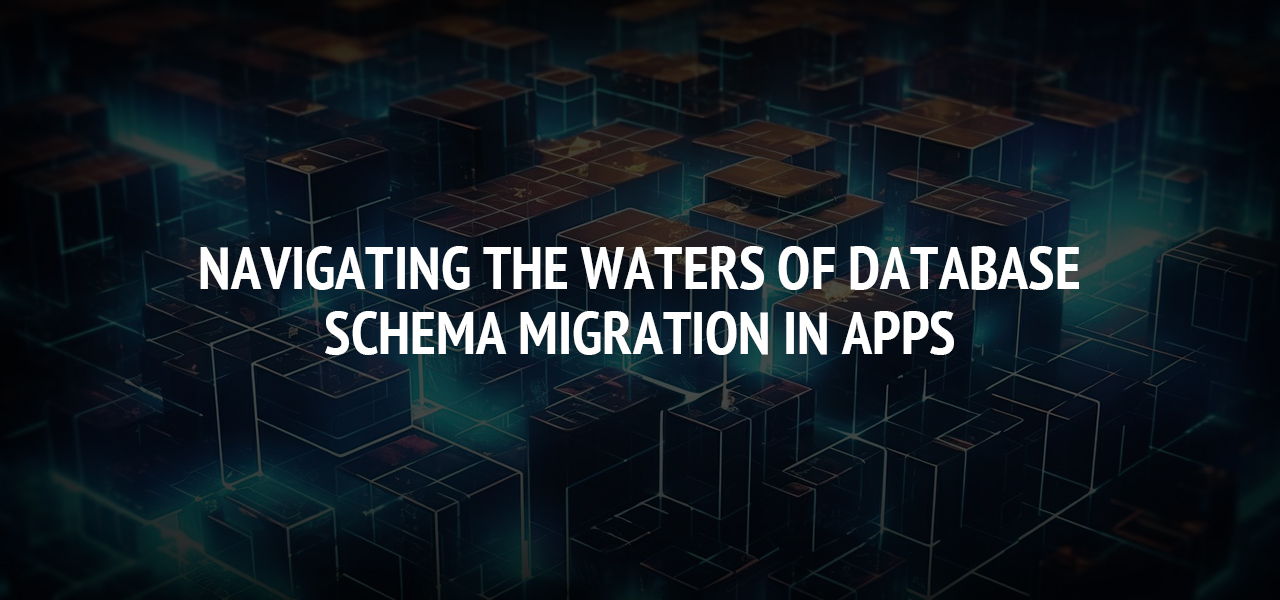Navigating the Waters of Database Schema Migration in Apps

In the ever-evolving landscape of app development, ensuring seamless data management is crucial for maintaining optimal performance and adaptability. Database schema migration plays a pivotal role in this process, enabling developers to modify and update the structure of a database without compromising data integrity. This blog post will delve into the significance of database schema migration in apps and explore the best practices to handle this complex task.
Understanding Database Schema Migration
A database schema defines the organization of data in a database, outlining the tables, fields, and relationships between them. As an app grows and evolves, so do its data requirements. Database migration becomes necessary when changes to the database structure are needed, whether it's adding new features, improving efficiency, or fixing issues.
The Importance of Database Schema Migration
- Scalability: Apps need to scale with increasing user demands, and an outdated database schema can hinder this growth. Schema migration allows developers to adapt the database structure to accommodate new functionalities and support a larger user base.
- Feature Enhancement: Introducing new features often requires modifications to the database schema. Whether it's adding new tables or altering existing ones, schema migration ensures that the database aligns with the evolving needs of the application.
- Performance Optimization: Developers may identify opportunities to optimize database performance over time. Schema migration allows for the implementation of improvements, such as indexing, partitioning, and denormalization, to enhance overall efficiency.
Best Practices for Database Schema Migration
- Version Control: Implement version control for database schema changes. Tools like Git can be used to track and manage changes, providing a clear history of modifications and facilitating collaboration among development teams.
- Backup and Rollback Procedures: Before applying any schema changes, always perform a backup of the database. In the event of unexpected issues, having a rollback plan ensures that the application can revert to a stable state without compromising data integrity.
- Testing Environments: Create separate testing environments that mirror the production environment as closely as possible. This allows developers to test schema migrations in a controlled setting, identifying potential issues before deploying changes to the live application.
- Gradual Implementation: Consider breaking down the changes into smaller, manageable steps for large-scale schema migrations. This approach minimizes the risk of errors and makes it easier to pinpoint issues if they arise.
- Communication and Documentation: Effective communication is key during schema migration. Ensure that all team members are aware of the changes, and document the modifications made to the schema. This documentation serves as a valuable resource for troubleshooting and future reference.
Challenges and Considerations
- Downtime: Depending on the complexity of the migration, downtime may be unavoidable. Minimize this impact by scheduling migrations during periods of low user activity and employing techniques like blue-green deployment to seamlessly switch between old and new database schemas.
- Data Migration: Migrating data between schema versions requires careful consideration. Develop scripts or use migration tools to transfer data accurately, ensuring that no information is lost or corrupted during the process.
Conclusion
Database schema migration is an inevitable aspect of app development, reflecting the dynamic nature of software evolution. Developers can navigate this process by understanding the importance of schema migration, implementing best practices, and addressing challenges proactively. In doing so, they contribute to the longevity and adaptability of their applications in a constantly changing technological landscape.
About The Author
Related Blog
View All-
3 Marketing Techniques to Make Your App More Visible
Nothing is worse than working hard on developing a perfect app only for it never to get noticed. The concept may be original, the coding flawless, and the interface easy to use. But without proper marketing, who is going to see it? This situation is the unfortunate ...
-
The Most Innovative Apps in the World
Word Lens, CamMe, and PhotoMath are some of the most innovative apps in the world. Others are SoundHound, Be My Eyes, Duolingo, and Trading Game. The question is how this list came together. Remember, Google Play Store has 3.6 million apps while the Apple App Store ...







